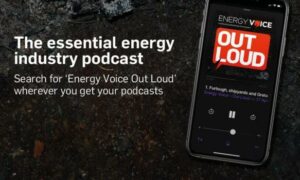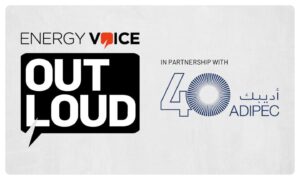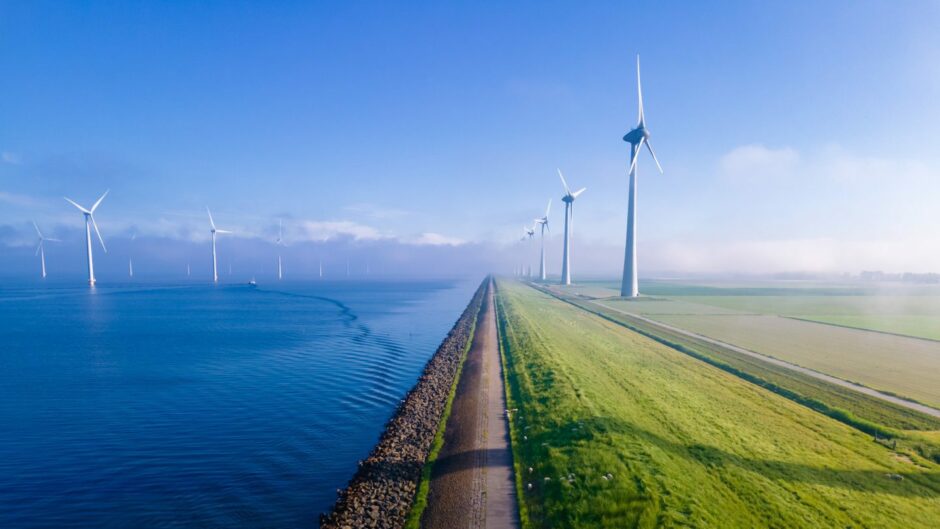
In the second episode of Season 2 of the Gigawaters podcast, Sustainable Growth Voice editor Felicia Jackson and guests discuss what is needed to create an enabling environment for a future that is economically, environmentally and socially sustainable.
Guests Benj Sykes, head of environment, consulting and external affairs at Orsted, and Clare Kanakides, head of network support at national youth charity OnSide, explore the implications of a just energy transition.
Engaging with young people
In terms of young people, especially those who are situation in areas of quite high deprivation and poverty, she says: “You see the whole range of career options that are available to them, and many of them, particularly young people that attend youth zones, that OnSide support across the country may never have considered careers or jobs in renewable energy – thinking that it’s not the kind of thing that people like them go into. By the time they become teenagers many have lowered their aspirations and are not looking at those kind of more technical careers.”
A large part of this is about building belief and aspiration. Kanakides references a recent youth voice census, which showed that 51% of young people aged 19 and above believe their mental health and specifically anxiety was their biggest barrier to work. She says: “What I feel is more was more startling as a fact was that less than 1/3 of young people think that employers are actually supportive of hiring them so that there’s two sides to the to the challenge.”
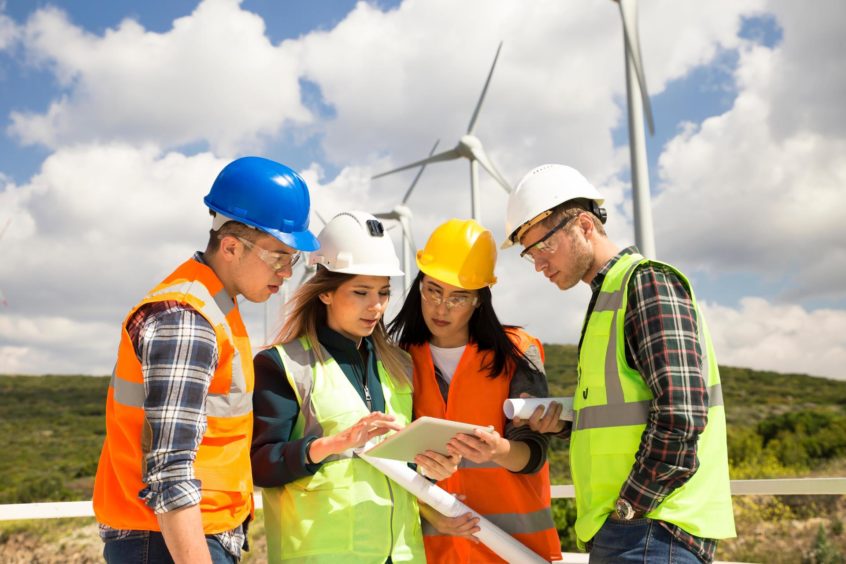
For Sykes, companies such as Orsted want to engage with the widest possible range of people from across society. He says: “We want to be inclusive. We want to be diverse and in particular we want to show people, while they’re students at school, particularly in that sort of early teens and even earlier, we need to show them that they have a really exciting future.”
Orsted, as an energy company, may have a great many engineers but it needs people from multiple disciplines, everything from HR to finance, and, says Sykes: “what we need to do is excite people. We need to inspire, to show that this is a sector that people can work in, and there’s plenty of different opportunities once you’re in.” This means building resilience in young people, empowering them to become agents of change.
Understanding what OnSide delivers through youth zones
Orsted is supporting OnSide’s planned youth centre in Grimsby, named Horizon, which is intended to do exactly that – open up new horizons. Such projects provide necessary support through youth clubs or youth zones, working with trained youth workers, so they can develop high quality supportive relationship with positive role models.
Anyone aged from 8 to 19 (or up to 25 with special needs) can take part, there are no eligibility criteria. Kanakides says: “It’s informal education for young people, away from the constraints of school, which for some young people may not be a positive experience.
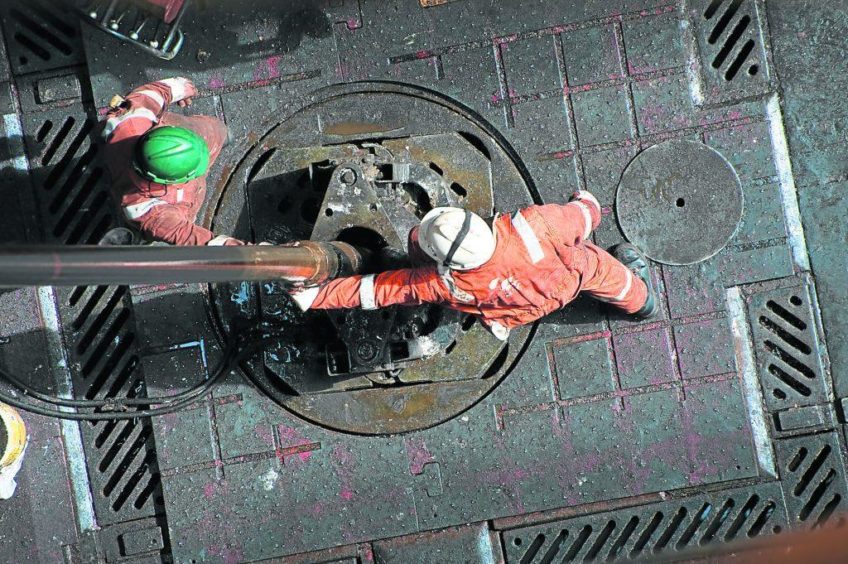
“It’s somewhere they can choose to go through of their own free will. They can stay for half an hour. They might stay for three hours. They might stay in one room all evening. They might do four or five different activities, sports, arts, craft, multimedia, but it’s a completely different environment and supports their development in a really different way to the way that formal education and classroom based learning does.
She adds: “Young people have all that they need within them to succeed, but they might not always know that it’s in there, or have the self belief to really go for it. So from building those trusting relationships and having someone to support them as they’re preparing to transition into adulthood, preparing to transition into permanent employment. It can really set young people up to succeed in a completely different way.”
In Grimsby, the young People’s Development Group is engaged in the project so far. Once the doors are open there are expected to be around 3,000 young people a year though the door. With the close links between Orsted and OnSide, there is strong potential for more informal education around environment: not simply showcasing sustainable technologies but talking to them about potential careers. Kanakides says: “In a town like Grimsby, which so many people have negative perceptions around employment prospects, it’s a complete game changer for young people if they can really, truly understand and believe that those kind of careers might be available for them.”
Renewable energy and communities
Opening up young minds about new potential opportunities can also open people’s minds to the possibilities of what their future might hold. As Sykes explains, that’s a big part of what Orsted is hoping to do with ScotWind, take lessons learned all over the world and break new ground in how we should address both the social and environmental agenda’s as such projects are built out – and learning about both what to do but also what not to do.
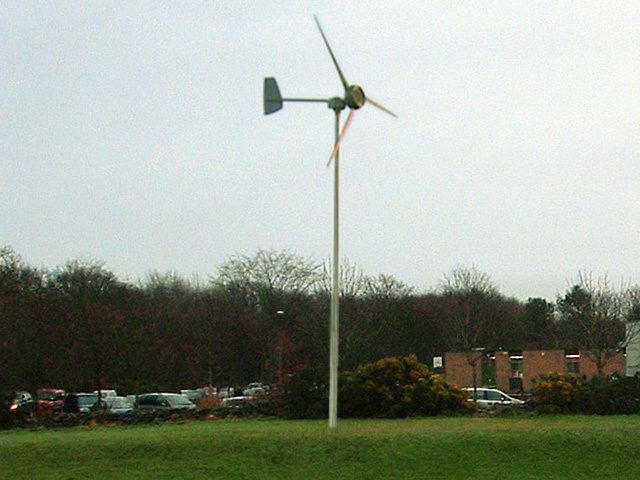
While the importance around the environment and consenting, it is clear how important Orsted’s work with communities really is – its even part of the development and permitting process. The company is committing to Community Benefit Funds, where the company has already put £8 million through East and West Coasts of the UK. Sykes says that Orsted has always prided itself on being a good member of the local community in which its operating. That’s more than supporting youth centres. Grimsby is an important place for the company, with around 500 working at Orsted there and many more in the supply chain surrounding it.
Sykes says that supporting the community is really important. There are two sides to this: one is engaging people as we develop projects to make sure we bring them along with us; the other is responding to community concerns. He says: “As we build projects, it creates some disruption and we want to make sure that we listen to and respond to local communities needs, but then also stay with those communities through the lifetime of the wind farm and that’s what our Community Benefit Fund is there to deliver.”
Kanakides agrees that communities are a vital part of what young people are looking for. She says: “Young people are looking for connection. They’re looking for communities. They’re not necessarily attracted for by traditional careers for life. They want to work somewhere where they feel they belong and they’re valued and they’re contributing. So that the work that Orsted does with communities is so valuable in bringing those opportunities to young people in particular, but also aligning with what they’re looking for.”
Transferring skills from one sector to another
The green transition is a huge opportunity to reshape our economy and the jobs and livelihoods that that creates. The renewable energy is set to grow enormously and ScotWind, could create a massive number of jobs. But, as Sykes points out: “We’ve got to find that workforce and we’ve got to encourage people to come and join the party.”
He adds: “I think there is this need to have a sense of purpose. I certainly feel that very strongly in in people that I speak to who are, think, thinking, what are they going to do with their careers and the ‘why’ is becoming more important than perhaps it was a generation ago. The ‘what’ is still important and it is important that we are providing meaningful, enjoyable, challenging jobs in in which people can grow and develop.”

He talks about the lessons that can be learned from engaging young people with the renewable sector, in terms of integrating skills from different industries across the group. He says:” There are many, many industries employing people that we would love to bring into the renewable sector. Obviously oil and gas is a big one and there are many skills in the oil and gas sector, whether they’re technical, commercial or other, that are very, very relevant to what we’re doing in the renewables. – so you know our door is always open.”
No one is too old to make the transition to green. While it is important to focus on the younger generation, the same applies to people at all points of their career journey – Sykes, for example, spent twenty years in the oil industry before moving into wind.
While these opportunities abound however, the question is how do we actually make this happen. Sykes says: “It is about initiatives like what we’re doing with Horizon – you need practical tools to engage with people. Big industry doesn’t generally have a great reputation and I think what we want to do is to lead the way in showing that you can be a big multinational global energy company and you can be likeable.
“You can actually be a place that people think, oh, that looks like a great place to work rather than some big steamroller behemoth that’s going to flatten all before it. We really passionately want to make sure that we don’t lose that sense of that spirit of adventure, spirit of breaking new ground, because I think that becomes very appealing again, not just to youth, but across all age demographics.”
In terms of people’s engagement, tackling environmental and social challenges might feel overwhelming but the point is that everything makes a difference. As Kanakides says, whether that’s something that might feel quite small scale, such as getting involved with a local campaigning group, or thinking about the batteries you use —it is not whether something is a bigger contribution but about actually taking action. She adds: “That’s the important thing and mobilising people to do things now, so that actually we can galvanise the increasing momentum around the green agenda and keep moving people it forward.”
This episode of Gigawaters is available to listen now on Spotify and Apple Podcasts.
Recommended for you

